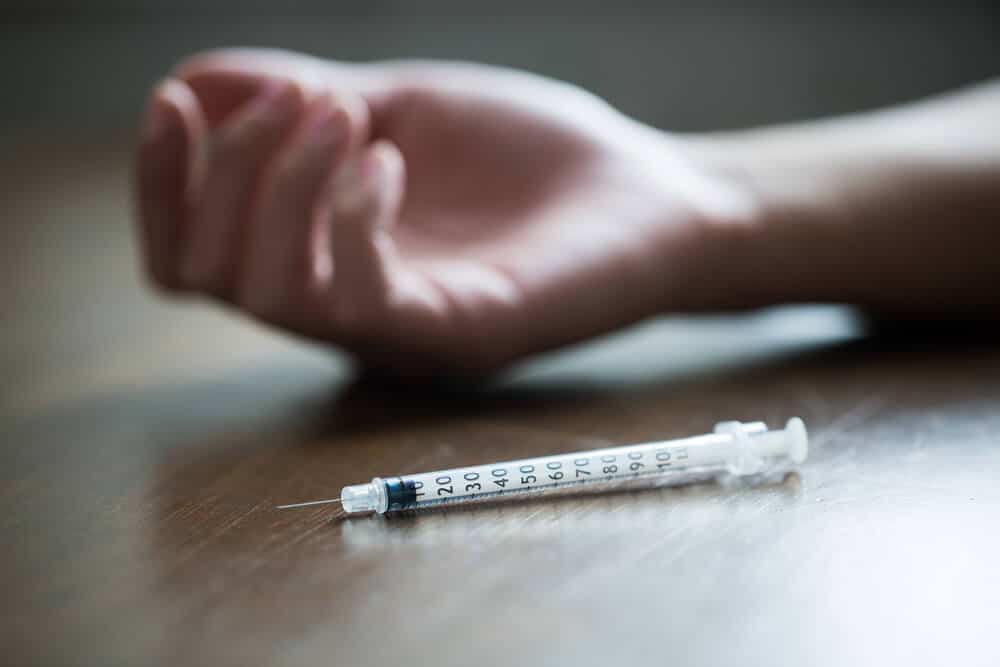
What to Do When You Have an Allergic Reaction to Meth
Legacy Healing Center Blog
Allergic reactions to using meth can vary greatly between users.
If you weren’t aware, having an allergic reaction to meth is possible because of the numerous types of serious side effects that can occur when using it. These methamphetamine symptoms can emerge even with small uses of it.
The scary part about meth is that it can easily lead to addiction as well as serious health issues. It’s important to understand methamphetamine symptoms as well as know which symptoms that could come through as an allergic reaction to meth.
Continue reading to learn more about symptoms as well as methamphetamine treatment.
Methamphetamine symptoms
Methamphetamine symptoms can be apparent in more than just physical appearance. Oftentimes you can notice use, or addiction to meth through rotting teeth and hyperactivity but those are the only two most common methamphetamine symptoms.
If you believe that someone you know or love may be in need of help through methamphetamine treatment, read through this list of symptoms before seeking help.
An allergic reaction to meth can be noted through hives, difficulty breathing, swelling of the face in the lips, tongue, and throat and immediate medical attention should be sought.
Other more serious methamphetamine symptoms are:
- Chest pain can be a sign of heart problems as well as trouble breathing and the feeling of passing out
- Hallucinations can be a sign of psychosis and can be demonstrated as new behavior patterns through aggression, hostility, and paranoia
- Numbness and pain can be signs of problems with the circulation that can be noted through feeling cold as well as wounds that cannot be explained and changes in skin color.
- Seizures
- Twitches in the muscles
- Changes in vision
Certain methamphetamine symptoms can be serious and emergency services should be called if specific symptoms are noted. These symptoms that require medical attention are elevated heart rate, hallucinations, agitation, fever, loss of coordination, vomiting, and diarrhea.
Other physical side effects that are less serious but more common are:
- Dizziness
- Headache
- Rapid heartbeat
- Insomnia
- Diarrhea
- Upset stomach
- Constipation
- Tremors
- Weight loss
- Loss of appetite
Developing an addiction to methamphetamine can lead to behavioral changes, and these changes mixed with physical changes can lead to the need for methamphetamine treatment. Here are some behavioral signs of addiction:
- Neglect of relationships
- Risky behaviors
- Isolation
- A shift in social groups
- Distraction in social situations
- Loss of interest in normal hobbies and activities
- Noticeable twitch or tic
- Hyperactivity
- Inability to eat
- Either insomnia or hypersomnia
- Visible changes in aggression and violent behavior
- Getting into trouble with the law
Meth can have long-lasting effects on health which can lead to problems in the liver, kidney, cancer, infection, rotting teeth, and even death. Death can oftentimes be a common outcome for methamphetamine users due to overdose.
This happens when someone takes too much of it, ultimately poising the body. If the overdose is caught in time, it is possible to recover. 911 should be called immediately if overdose on meth is occurring while ensuring that the individual stays cool and doesn’t injure themselves.
Although there is no route to cure addiction, getting methamphetamine treatment can be a step in the right direction. There are specialists who work in treatment centers that understand the right routes to treat those who are suffering from an addiction to meth.
Recovery can be a long process but through correct medical attention, psychological counseling as well as support and accountability, individuals can recover from the addiction and return to a normal life.
If you or someone you love is suffering from an addiction to meth, seeking help can save a life.
Learn more about meth addiction treatment and how to get long-term help at Legacy Healing Center. With a variety of programs and treatment options, achieving sobriety is closer than you may think. Call us today at 888-597-3547.
At Legacy Healing Center, our approach to recovery is built around a holistic methodology. We look at addiction as a comprehensive issue and offer a complete set of services to heal the physical body, the mind, and the spirit. Combining research-evidenced practices from medicine and psychology, our team of highly trained professionals looks at all aspects of our clients’ lives on an individual basis. Our holistic approach to healing encompasses more than dealing with addiction through primary treatment strategies like therapy and meetings. We offer a full range of services to heal the whole person, body, mind, and spirit.